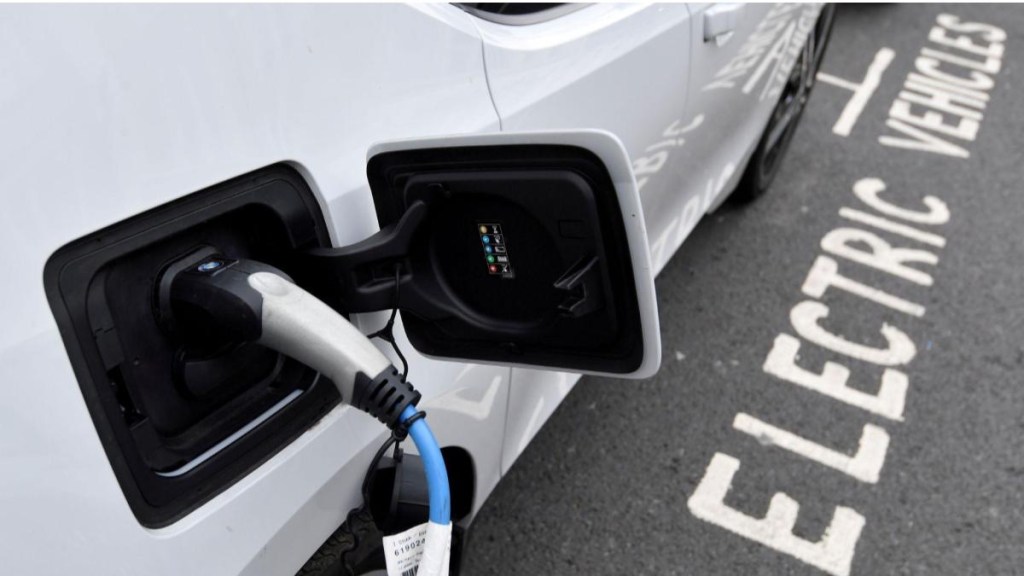Ahead of US President-elect Donald Trump’s swearing-in on January 20, the Ministry of Heavy Industries has extended an invitation to Elon Musk-led Tesla, along with other major global and domestic EV players, for a high-level stakeholder consultation on Tuesday.
The meeting is to finalise the guidelines for the Scheme to Promote Manufacturing of Electric Passenger Cars in India (SPMEPCI), or the EV policy. This is the second round of consultations on the guidelines, delayed by around eight months due to the general elections.
Unveiled in March 2024, the EV policy is designed to attract global automakers and bolster domestic manufacturing capabilities. The scheme provides for incentives for EV manufacturers to establish production facilities in India while mandating significant investments in local manufacturing and supply chains. Under the proposed guidelines, domestic value addition (DVA) will be assessed in line with the production-linked incentive scheme for automobiles and auto components (PLI-Auto). As part of it, expenditure on research and development, as well as the creation of EV charging infrastructure, will qualify as eligible investments under the scheme.
The policy also proposes reduced import duties for automakers who commit to investing a minimum of $500 million (approximately Rs 4,150 crore) in India, along with achieving 25% DVA within three years of operations and 50% by the fifth year. For qualifying manufacturers, import taxes on EVs priced above $35,000 CIF (cost, insurance, and freight) will be slashed to 15% from the current rates of 70% or 100%.
The proposed scheme has drawn mixed reactions. While it offers significant incentives, global automakers like Tesla and VinFast have raised concerns about certain criteria. During initial consultations in April 2024, these companies questioned the DVA calculation methodology and the exclusion of pre-existing investments from eligible criteria. Tesla, then represented by its advisor, The Asia Group (TAG) India, had expressed reservations about meeting DVA targets in the stipulated time frame. Similarly, Vietnam’s VinFast, which is building an EV plant in Tamil Nadu with an initial investment of $500 million, had argued that pre-existing expenditures should qualify for incentives.
Sources indicate that these issues prompted the government to revise the guidelines, broadening the scope of eligible investments to include R&D and charging infrastructure development. There is speculation that retrospective investments could also be included with certain caveats. Tesla’s potential re-engagement is being watched given its history with India. Musk’s planned visit to the country in 2024 was abruptly cancelled, citing “heavy Tesla obligations”. Since then, the company’s investment plans in India have been in limbo. This consultation could reignite discussions, especially as Tesla eyes expanding its global footprint. Now, Musk is also a key personnel in the incoming Trump administration in the US.
Vietnam’s VinFast, which has already committed significant investments in India, is another key participant. Its representatives are expected to seek clarity on the revised guidelines, and whether investments made by it would qualify for incentives or not.
The upcoming consultation is expected to witness participation from global EV leaders, including Tesla, Hyundai, BMW, Mercedes-Benz, Kia, Toyota, and Renault–Nissan, as well as Indian automakers like Tata Motors, Maruti Suzuki, and Mahindra & Mahindra. These players had attended the first round of consultations. A query sent to the ministry of heavy industries and the Society of Indian Automobile Manufacturers (Siam) regarding the number of participants did not elicit response till the time of going to press.
While the scheme’s goals are ambitious, challenges remain. Industry insiders suggest that lacklustre initial interest stemmed from stringent DVA requirements, high investment thresholds, and non-inclusion of retrospective investments. The delay in finalising guidelines has also caused uncertainty among automakers.
The government aiming to address lingering industry concerns. Analysts maintain that if implemented effectively, the policy could position India as a leading destination for EV manufacturing and innovation, rivalling global hubs like China and the US.



















